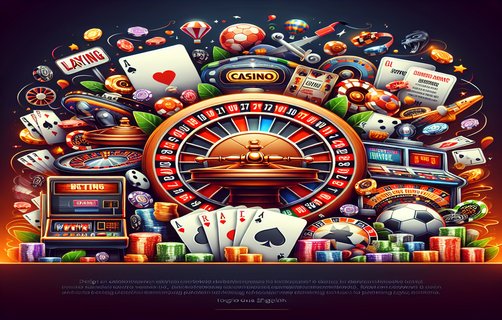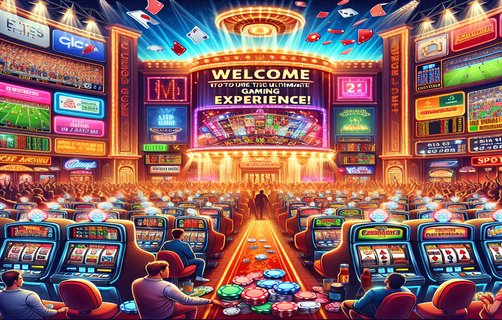The Psychology Behind Satta Matka and Modern Gaming Strategies

The world of gaming, particularly in the context of Satta Matka and various innovative gambling strategies, offers a fascinating glimpse into human psychology. Understanding the intricacies of game mechanics—such as multi-payline slots, mobile jackpots, and other pivotal strategies—can enhance both the experience and the potential for success.
Multi-payline slots provide players with various ways to win, influencing their betting behavior. Psychologically, this setup appeals to the human desire for choice and control. Players often feel more empowered when they believe they have multiple avenues to achieve a win. Each additional payline creates an illusion of increased chances, even if the actual odds remain unchanged. This cognitive bias, known as the 'illusion of control', can lead players to engage more intensely, increasing their emotional investment in the game.

As technology advances, mobile jackpots have surged in popularity, tapping into the modern player’s need for convenience and immediate gratification. Mobile gaming allows players to access their favorite games anytime and anywhere, promoting a sense of continuous engagement. The accessibility contributes to a compulsion many face when playing, often leading to impulsive decision-making without thorough consideration of the odds. This phenomenon illustrates the powerful impact of psychological cues—like the excitement of potentially hitting a jackpot—on gambling behavior.
The concept of hand re-entry in tournaments, where players can re-enter the game after being eliminated, is another intriguing element that capitalizes on psychological aspects. This feature can provoke feelings of hope and perseverance. Players might believe that a second chance increases their chances of success, pushing them to invest further resources. This strategic element fosters a mindset where players may be more willing to take risks, assuming their ‘good luck’ will manifest in the re-entry phase.
Bet sizing remains a critical component across gaming platforms. The psychological underpinnings of how players choose their bets can reflect risk aversion or risk-seeking behavior, often influenced by prior experiences and current emotions. Players may adopt conservative betting sizes when feeling anxious or insecure about the outcome, while those feeling lucky might increase their bets significantly. Recognizing one's tendencies in bet sizing can be a valuable self-awareness tool and offers an opportunity for strategic recalibration.
In games featuring triple draw, players must navigate between multiple rounds of betting and card drawing. This dynamic format caters to the thrill-seeking behavioral archetype and challenges players to adapt their strategies constantly. The psychological effect of repeated opportunities for decision-making can lead to gambler’s fallacy, where players miscalculate their chances based on previous draws. Understanding this cognitive bias can significantly enhance a player’s strategic approach, allowing for calculated risks instead of emotional reactions.
Bubble play strategies often create unique psychological positioning. Players may experience heightened tension during an imminent bubble phase—when the tournament nears its payout threshold. This pressure can cause some to tighten their gameplay, playing more conservatively and missing out on potential advantages. Understanding the psychology behind bubble situations can empower players to adopt more aggressive strategies, leveraging the stress of other players to optimize their position.
Finally, identifying bluffing spots is crucial in games requiring strategic deception. A player’s ability to comprehend opponents’ psychological states is vital for effective bluffing. This aspect involves reading non-verbal cues and betting patterns—skills that intertwine intuition with analytical thinking. Developing this psychological acuity can create significant advantages over less observant opponents.
In conclusion, comprehending the intricate psychological dynamics of gaming strategies—from the allure of mobile jackpots to the nuanced adjustments of bet sizing—provides players with the tools needed to navigate the complex landscape of Satta Matka and its modern counterparts effectively. By applying psychological insights, gamers can improve their decision-making processes, ultimately enhancing their overall gaming experience.
